For a young adult used to spending time in a classroom or online, encountering God’s grandeur in the mountains of Wyoming can be a profound spiritual experience. Now graduates of Wyoming Catholic College in Lander, Wyo., are sharing what they experienced with others through an exciting outdoor retreat program.
In Sacred Scripture, mountains are often places of prayer and encounters with God. Abraham was called to sacrifice his only son on a mountain—but then had a profound experience of God when He commanded him not to complete the sacrifice. Moses received the Ten Commandments and spoke with God on Mt. Sinai. Elijah heard God’s still, small voice on a mountain. Jesus often went to the mountains to pray by Himself. Throughout the Scriptures, we see again and again how God can be discovered in the wilderness and on the mountaintops.
Students at Wyoming Catholic College, which is recommended for its faithful Catholic education in The Newman Guide, encounter God in the wilderness and on the mountaintops through a rigorous outdoor program. Students explore the wilderness, or “God’s First Book,” to find Him and renew their relationship with Him while backpacking, whitewater kayaking and ice climbing. It’s more than just having a good time in the wilderness—it’s about education, communication, preparedness, leadership, and growing closer to God.
Zachary Carlstrom, who graduated from WCC in 2016, had a profound encounter with God during his 21-day freshman expedition, which is the College’s freshman orientation trip in the Wind River Mountains. Never in his wildest dreams did he think that, years later, he would be operating COR Expeditions (Catholic Outdoor Retreat), which is an outreach of WCC, alongside his wife Sarah, a 2014 graduate. Today, the two are using the education and formation they received at WCC to help others encounter God through nature.
COR “facilitates transformative encounters with Christ through what the wilderness has to offer,” according to the Carlstroms, and gives those who haven’t attended WCC a taste of the College’s outdoor program.
In 2012, a few ministry-focused organizations and seminaries started asking WCC to facilitate trips for them and their students, because they could see the benefits of outdoor education. “We wanted to offer outdoor education in an authentically Catholic way,” Zach explained, because many outdoor programs already in existence are either secular or Protestant.
“As we had more qualified staff from the student population to offer the trips,” he said, “we felt like there was a real need in the Church, and there wasn’t anyone doing that: authentic outdoor trips with professional guidance. We started to offer trips to more and more groups.”
Zach was COR’s first employee in2016. “From there, we’ve doubled the number of trips each year, aside from 2020 during coronavirus,” he said.
For a while, there was some question as to whether COR would stay connected with WCC. Now, it’s been decided that “WCC wants COR forever. We’ve officially been operating as an outreach of WCC since the beginning; we share a mission in the shared values of the Catholic faith through contact with God’s first book.” The benefit of partnering with WCC is that the groups share permits, which means that COR can offer trips in Wyoming, Colorado and Utah. They have also offered custom trips in California, Florida, Texas, Kentucky, Montana, and even abroad in New Zealand, Iceland and Scotland. Front-country leadership trainings are available across the United States.
“We’re bringing the liberal arts and holistic education to others through steeping people in wonder and helping them grow in their spiritual lives from that position of wonder,” Sarah said.
Zach added that COR focuses especially on two types of client. ”We want to help renew the faith of those who are already in the Church, such as religious orders like the CFRs or discipleship groups like FOCUS, and we see COR as a way to engage them more deeply.
“At the same time, we have a big heart for those who haven’t had contact with the Church, or maybe haven’t practiced in a while, and somehow they got onto one of our trips,” he said. “They experience the sacraments in a new way: we’ve had people make first confessions, Rosaries, Adoration. Our mission is unique because we can draw someone in who might not otherwise do a ‘faith based’ activity, but they get excited about a rock climbing, backpacking or rafting trip.”
Their impact so far has been impressive. They have worked with more than 2,500 college students, 350 FOCUS missionaries, 100 seminarians, 30 chaplains, 400 school students, 50 wounded veterans and 100 families. They have nine full-time missionaries who fundraise their salaries.
For both Zach and Sarah, their time at WCC had an undeniable influence on their development of COR. Sarah explained, “There’s the practical component that WCC provided us with our first formal training in the outdoors, beginning to develop those core skills in the outdoor program. I would also say that the opportunities at WCC to develop leadership and to have mentorship in leadership were helpful, such as for me, being a prefect, or for Zach, being involved with the parish’s youth group.”
“From the academic perspective,” she added, “when I graduated from WCC, I felt incredibly blessed with the education that I had received, especially in theology, philosophy and humanities, and because of the appreciation I had for it, it made me strongly desire to share it. When I graduated from the College, I was still among a small number of people who had received that education. There were so many who hadn’t received such an education, and this is why I wanted to work in ministry.”
For Zach, “COR would not have been possible without the mentorship and position that Dr. Zimmer [the College’s outdoor program coordinator] gave me, and the empowerment that the outdoor program gave me. My experiences in the outdoors here opened my eyes to wonder for the first time, and the idea that God can work through His First Book. I never thought that ministry could exist in outdoor programs, that it didn’t need four walls. God could encounter people individually in the wilderness.”
WCC has inspired the entire COR missionary team: “From the communication skills in rhetoric to the leadership from the outdoor program, it astounds me how well we work together as a team, in comparison to some other organizations I’ve worked with,” Zach said. “Some of the simple things we learned here are profoundly new ideas in other places.”
Sarah added, “WCC set an incredible example, especially in the founders, that we feel called by the Church to do this, and we’re going to make it happen, against all odds. That really inspired us. When God asks, we answer. We believe that He will provide.”
“A small group of people can change the world, our ideas matter, our thoughts matter, our passions matter,” Zach said. “The examples we had for those realities were really strong, simply by the College saying that our students will be the leaders of the Church.”
The Carlstroms hope that COR will continue to grow. “Coming to a college that was just getting its feet made starting a ministry not seem as daunting,” they said. “The pioneer spirit of WCC just carried forward in COR, and will only continue to do so.”
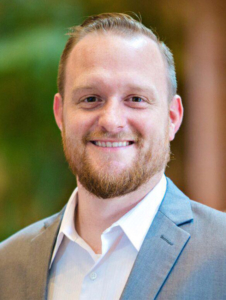

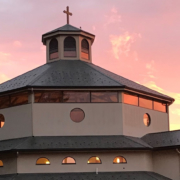
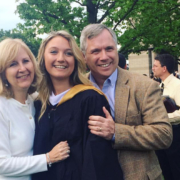
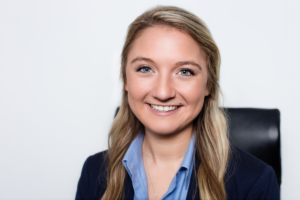
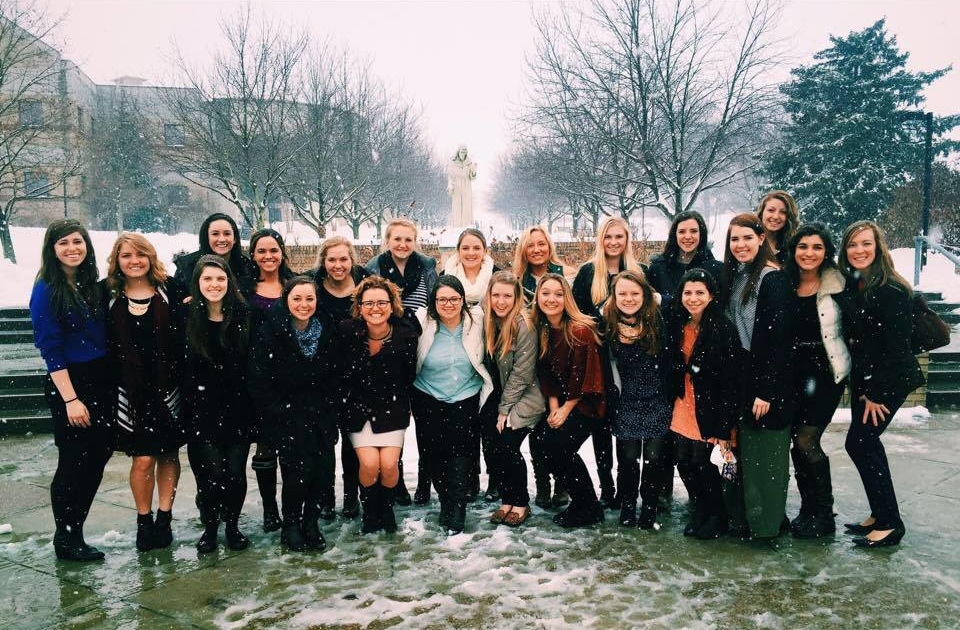
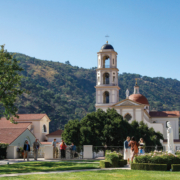
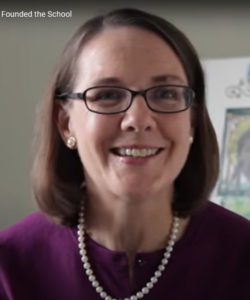
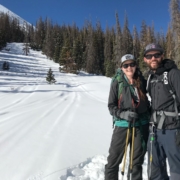
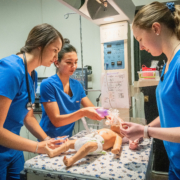
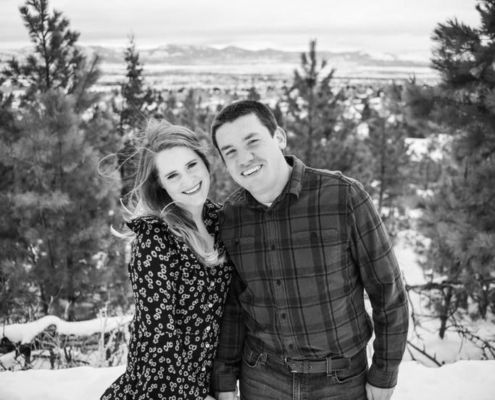

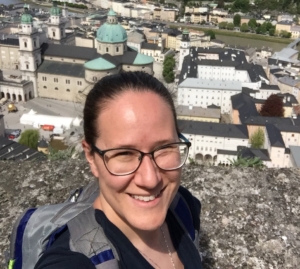

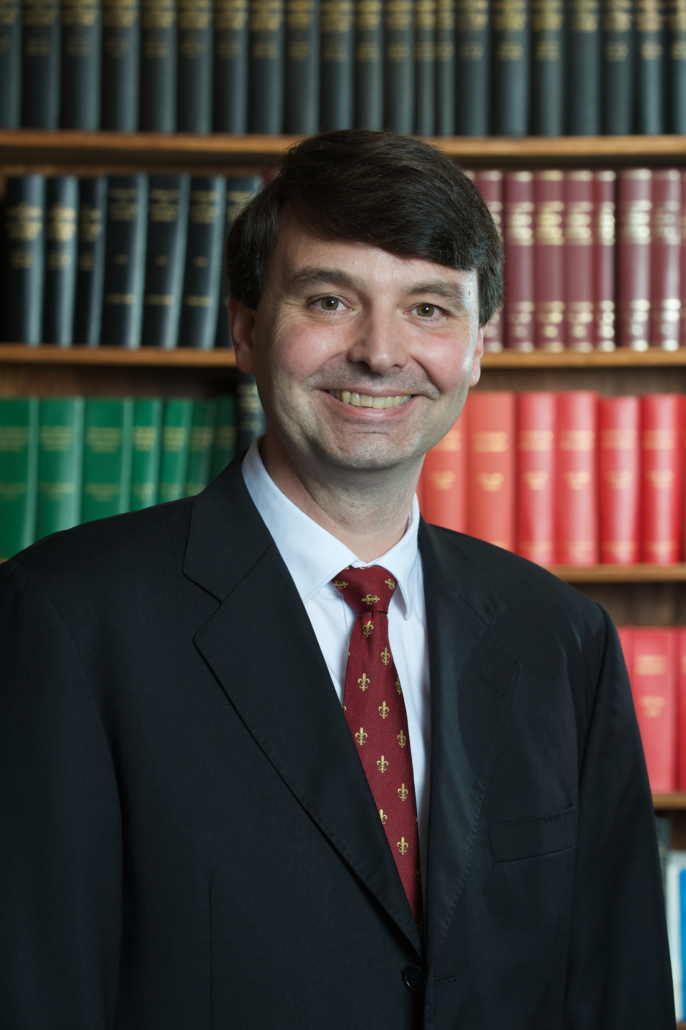
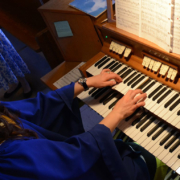
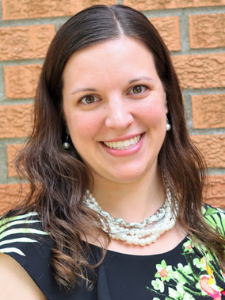
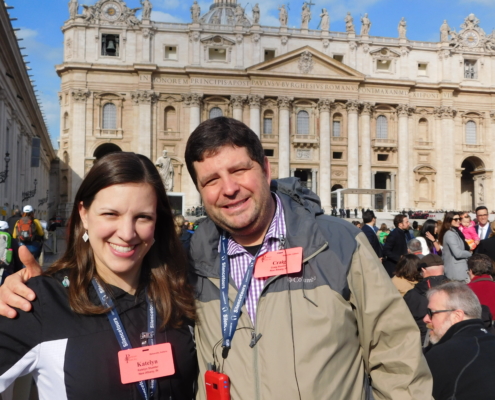
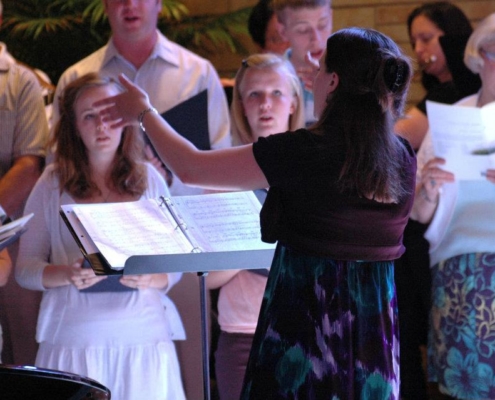
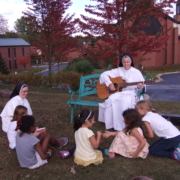
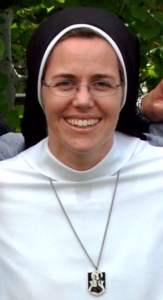
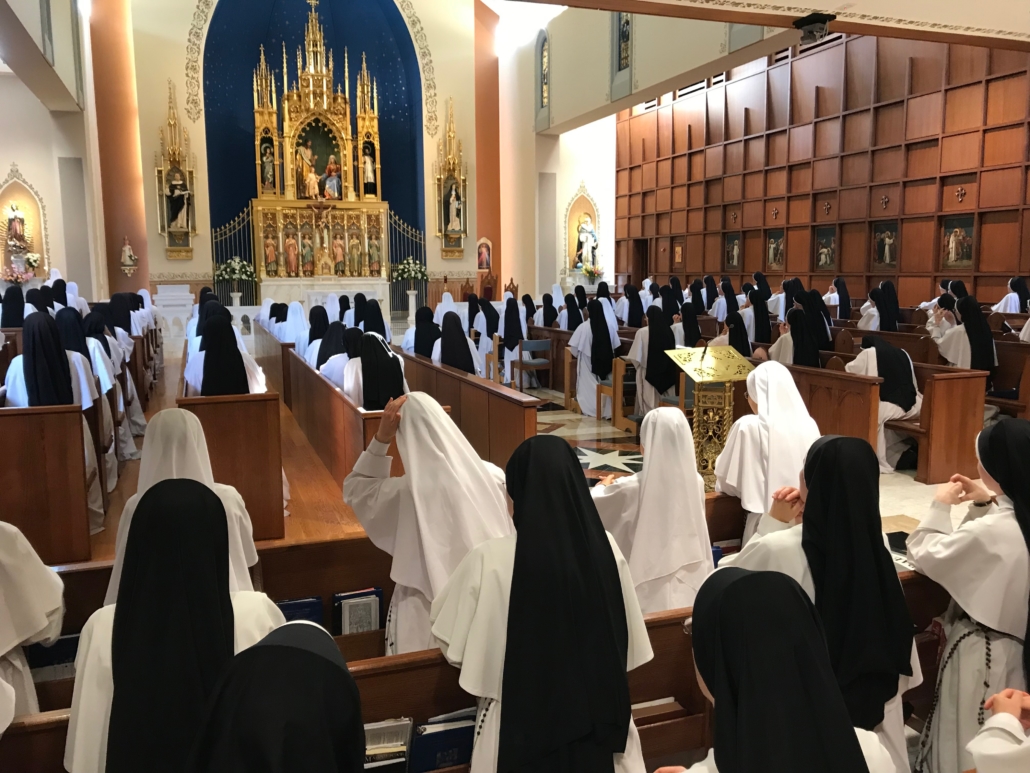
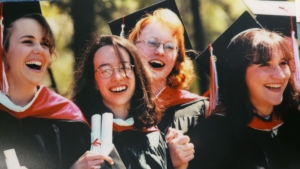
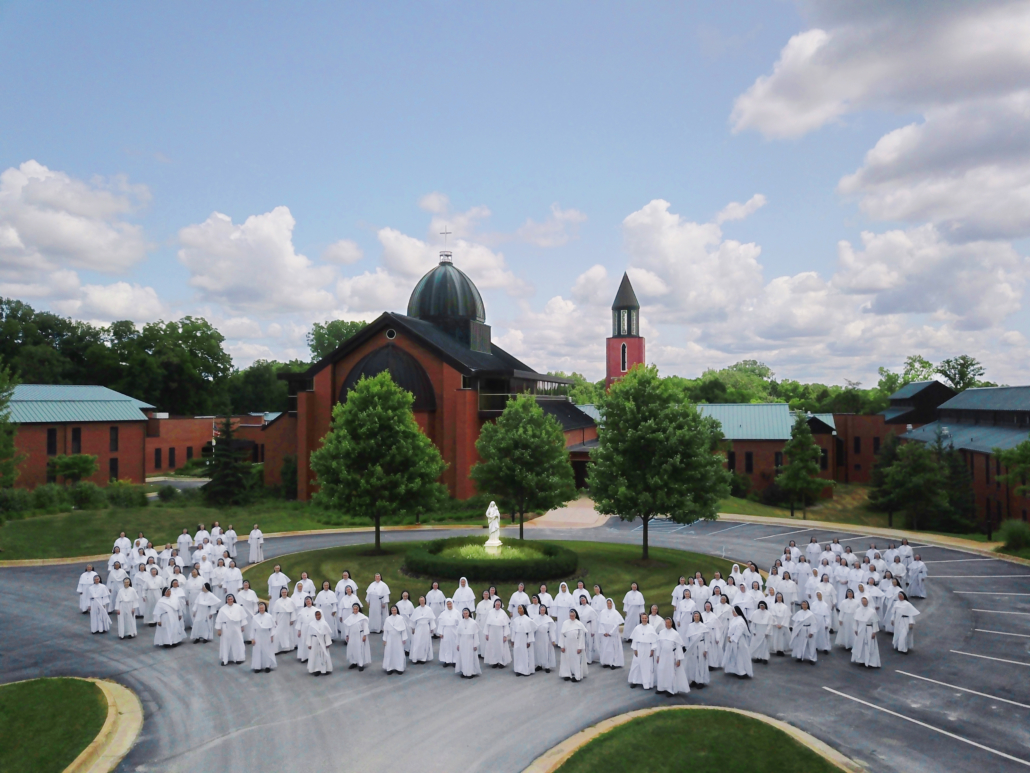
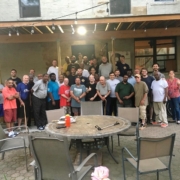
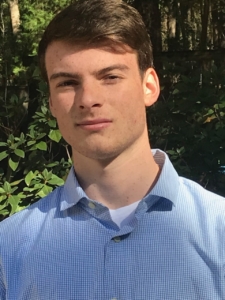
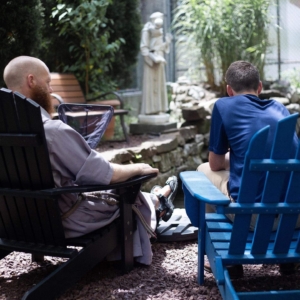 Newman Society: Can you tell us about the work you’re doing with the homeless during this COVID-19 crisis?
Newman Society: Can you tell us about the work you’re doing with the homeless during this COVID-19 crisis?